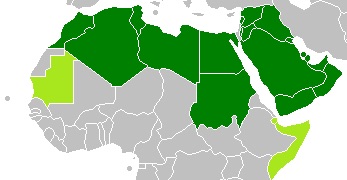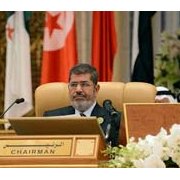
La Liga Árabe tiene una larga historia de fomento de la cooperación comercial y económica entre sus Estados miembros, con varias iniciativas en las décadas de 1950 y 1960.
En 1981 se firmó un acuerdo para facilitar y promover el comercio entre los países árabes, pero no tuvo mayores consecuencias.
En febrero de 1997, la Liga decidió crear un Área de Libre Comercio Árabe, también conocida como Gran Área de Libre Comercio Árabe o Área de Libre Comercio Pan-Árabe, a partir del 2008. Esto se lograría mediante una reducción anual del 10% en los aranceles aduaneros y la eliminación gradual de los obstáculos al comercio. Dieciocho de los 22 países integrantes de la Liga Árabe firmaron el acuerdo que entró en vigor el 1 de enero de 1998.
En marzo de 2001 se decidió apurar el proceso de liberalización, y a partir del 1 de enero de 2005 se aplicó la eliminación de la mayor parte de los aranceles entre los miembros del GAFTA.
Los 17 Estados que integran el GAFTA son: Argelia, Bahrein, Egipto, Irak, Kuwait, Líbano, Libia, Marruecos, Omán, Palestina, Qatar, Arabia Saudita, Sudán, Siria, Túnez, Emiratos Árabes Unidos y Yemen. Hay otros que están procesando su integración al acuerdo.
última actualización: mayo de 2012
foto: Wiz9999/Wikipedia/CC BY-SA 3.0






